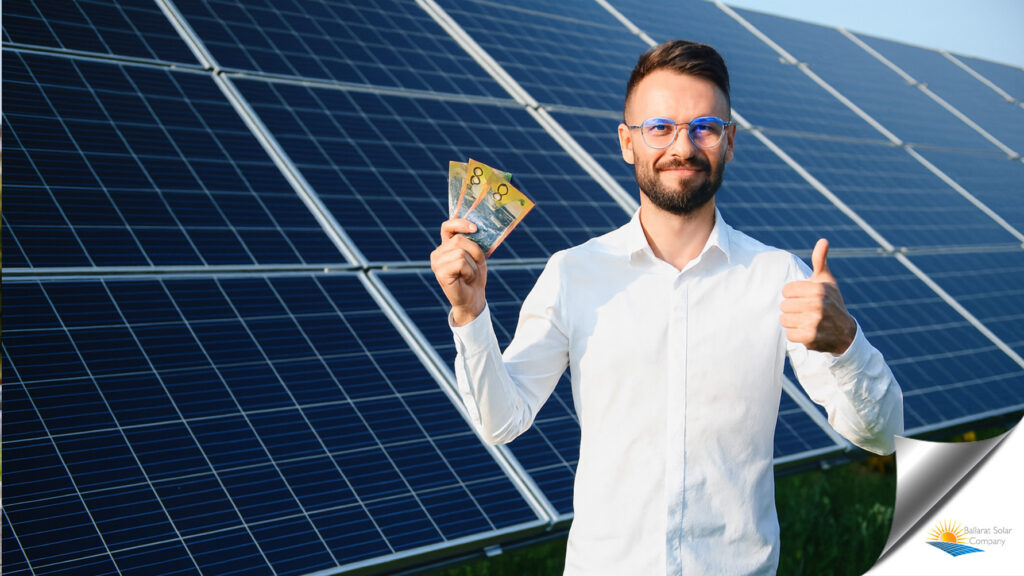With 2025 approaching its end, solar panels are becoming more popular than ever. As electricity prices rise and concerns about the environment grow, many Australians are looking to solar energy as a smart, cost-effective solution.
But, are solar panels worth it in 2025? In this guide, we’ll dive into everything you need to know to decide if solar panels are a good investment for you this year.
We’ll explore the costs, savings, environmental benefits, and more. From the latest tech to government rebates, we’ve got you covered. By the end, you’ll have all the information to make an informed decision on whether solar panels are the right choice for your home.
Why Solar Panels Are More Relevant Than Ever in 2025
The relevance of solar panels has never been higher. With the rising cost of traditional energy and a greater push for sustainability, solar energy has become a key solution for homeowners looking to save money and reduce their environmental impact.
Let’s take a look at why solar panels are more important than ever this year.
Increase in Energy Costs
With energy prices continuing to climb, solar panels are becoming a popular solution for Australians looking to save money. By switching to solar energy, you can avoid the rising costs of electricity and lock in your energy rates for years to come.
Government Incentives and Rebates
There’s never been a better time to go solar, thanks to generous government incentives and rebates. In 2025, many states still offer financial support to help reduce the upfront cost of installing solar panels, making it more affordable than ever.
Technological Advances
Solar technology has come a long way. Today’s solar panels are more efficient, durable, and affordable. With advances in technology, you can now get a better return on investment, with solar systems that work in all kinds of conditions, even on cloudy days.
The True Cost of Solar Panels in 2025
When considering solar panels, the first question that usually comes to mind is: How much will it cost? While there’s no one-size-fits-all answer, the good news is that solar panels have become more affordable over the years. Let’s break down the cost and explore the savings you can expect.
Initial Investment
The upfront cost of installing solar panels in 2025 can range from $3,000 to $10,000, depending on factors like the size of the system, brand, and installation fees. While this might seem steep, remember that solar panels are an investment that pays off in the long run with energy savings.
Financing Options
If the initial investment is a concern, there are plenty of financing options available. From solar loans to leasing and Power Purchase Agreements (PPAs), you can find a payment plan that works for your budget. Many Australians are opting for these options to spread out the cost and start saving on energy bills right away.
Cost vs. Long-Term Savings
It typically takes between 5 to 10 years to recoup the cost of your solar panels through energy savings. After that, your solar system generates free electricity, meaning you can enjoy years of savings without having to pay for power. Over 20 years, many homeowners can save $20,000 to $30,000 or more in energy bills.
How Solar Panels Can Boost Your Home’s Value
Installing solar panels doesn’t just save you money on energy bills; it can also increase the value of your home. Let’s take a look at how solar panels can give your property a financial boost.
Increased Property Value
Homes with solar panels often sell for more than homes without them. On average, properties with solar systems can see a 5% increase in value. This means that if your home is worth $500,000, adding solar panels could potentially increase its value by $25,000 or more.
Attracting Buyers
In 2025, homebuyers are increasingly looking for energy-efficient homes. Solar panels are a major selling point, as they promise long-term savings on energy bills. Buyers are more likely to be attracted to homes that already have solar systems installed, making your home stand out in the market.
The Proof
According to a report by PropTrack and Origin Energy, 73% of Australians believe that solar power significantly enhances a property’s value. Additionally, 12% of respondents indicated a willingness to pay at least 5% more for a home equipped with solar panels.
Environmental Benefits of Solar Panels
If you’re looking to make a positive impact on the environment, solar panels are an excellent choice.
Here’s how switching to solar energy can help protect the planet.
Reduction in Carbon Footprint
One of the key benefits of solar panels is their ability to reduce your carbon footprint. By using solar energy instead of fossil fuels, you’re helping to lower harmful emissions. A typical solar system can prevent 100 tons of CO2 from entering the atmosphere over its lifetime, the equivalent of planting around 2,500 trees.
Sustainability
Solar energy is a sustainable solution for the long term. Unlike fossil fuels, which are finite and polluting, the sun will always provide a reliable, clean source of power. By installing solar panels, you’re choosing an energy source that contributes to a cleaner, greener future.
Renewable Energy Impact
As more Australians switch to solar panels, we reduce the demand on the electricity grid, lowering the need for traditional, polluting energy sources. This helps lower carbon emissions and contributes to Australia’s goal of becoming more sustainable and energy-efficient.
Are Solar Panels Worth It for Your Specific Location?
When considering solar panels, your location plays a big role in how much energy they can generate. Let’s look at how your environment and climate can impact the effectiveness of your solar system.
Geographical Impact on Solar Efficiency
The performance of solar panels depends largely on the amount of sunlight they receive. In sunnier areas, like parts of Queensland, solar panels are extremely efficient, generating more electricity. In contrast, regions with more cloudy days, like Tasmania or the southern parts of Victoria, may see slightly lower energy output, but they still provide significant savings.
Climate and Weather Factors
Weather conditions also affect how well solar panels work. On rainy or overcast days, energy production will be lower. However, solar systems can still generate power, and many solar panels are designed to be efficient even in less-than-ideal weather. Additionally, solar panels can be combined with battery storage to make the most of sunny days and store energy for when it’s needed most.
Potential Drawbacks of Solar Panels in 2025
While solar panels offer many benefits, they aren’t without their challenges. Here are some major concerns homeowners express before making the switch.
I’ll Have to Pay Too Much Upfront
The biggest hurdle for many homeowners is the initial investment. Even though solar panels can save you money in the long run, the upfront cost can be significant. Thankfully, there are financing options and government rebates available to help reduce this barrier.
I Don’t Have Enough Roof Space
Not every home has the space to accommodate solar panels. For homes with limited roof space or those in urban areas, installation might be tricky or even impossible. However, smaller systems or alternative installation options (like solar shingles) may be a solution.
My Property Will Look Ugly
Some homeowners worry about how solar panels will look on their roof. While modern panels are sleek and unobtrusive, they can still affect the appearance of your home. This can be a concern for those living in heritage-listed buildings or areas with strict design regulations.
It Requires Regular Maintenance
While solar panels are relatively low-maintenance, they do require occasional cleaning and inspection to ensure optimal performance. In areas with lots of dust, dirt, or bird droppings, panels may need to be cleaned more frequently. But overall, solar systems require little ongoing upkeep.
Future Outlook for Solar Panels
The future of solar panels looks brighter than ever, with exciting developments on the horizon. Here’s what you can expect in the coming years.
Advancements in Solar Technology
In 2025, solar technology continues to improve. From solar shingles to more efficient panels, innovations are making solar energy even more affordable and effective. Advances in battery storage are also allowing homeowners to store more energy for later use, increasing the overall benefits of solar systems.
Growth of Solar Energy Market
The solar energy market is expected to continue its rapid growth, driven by both environmental concerns and the increasing demand for renewable energy. More homeowners, businesses, and even governments are investing in solar power, and this trend will only grow stronger in the coming years.
Long-Term Benefits
Investing in solar panels now can offer long-term rewards. As the world moves towards cleaner energy, the value of solar panels will only increase. With further technological advancements, solar systems will become even more efficient, meaning even greater savings and environmental impact.
Future Outlook for Solar Panels
How much can I save with solar panels in 2025?
The savings from solar panels vary depending on your location and energy consumption. On average, Australian homeowners can save anywhere from $1,000 to $2,500 per year on their energy bills. Over the lifespan of a solar system (20-30 years), this can add up to $20,000 to $30,000 in savings.
Do I need a battery for solar panels?
While you don’t necessarily need a battery for solar panels, it can be a good idea if you want to store excess energy for use during the night or on cloudy days. Batteries, like the Tesla Powerwall, allow you to make the most of your solar energy throughout the day and night, reducing reliance on the grid.
What happens if my solar panels aren’t producing enough energy?
If your solar panels aren’t producing enough energy (e.g., due to bad weather or increased demand), most systems are connected to the electricity grid. This means you can draw power from the grid when needed. Additionally, with battery storage, you can store energy for later use.
How long do solar panels last?
Most solar panels come with a warranty of 25-30 years, but many systems continue to function well beyond that. While their efficiency may decrease slightly over time, solar panels can still generate significant power even after decades of use.
Future Outlook for Solar Panels
To sum it up, solar panels are more than just a trend in 2025; they’re a smart investment that benefits your wallet, your home’s value, and the environment.
With rising energy costs, generous government incentives, and significant technological improvements, solar panels are more affordable and effective than ever. The long-term savings, along with the positive impact on the environment, make solar panels a valuable addition to any home.
Whether you’re looking to save on energy bills, increase your property value, or reduce your carbon footprint, solar panels offer a wide range of benefits. So, if you’re considering making the switch to solar energy in 2025, it’s clear that solar panels are worth the investment.
If you’re ready to explore how solar panels can benefit your home, right now is the best time to buy solar panels. Reach out to Ballarat Solar Company today. As your local provider, we can provide you with a quote or consultation tailored to your needs. The future of solar energy is bright, and it’s waiting for you to leap!


